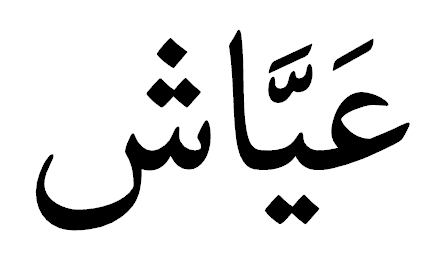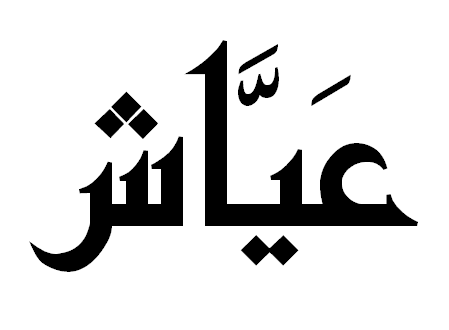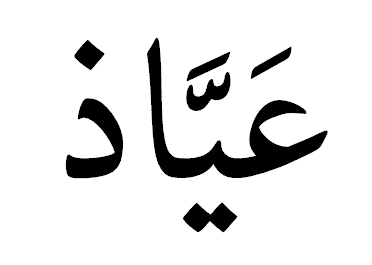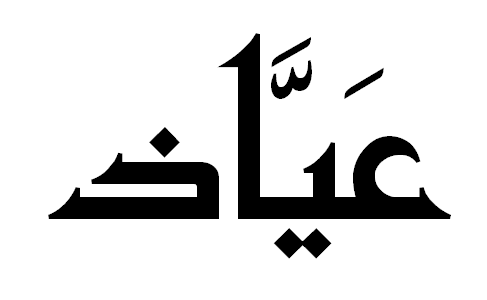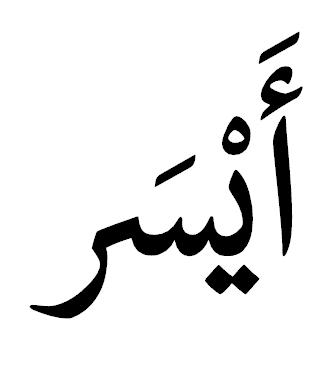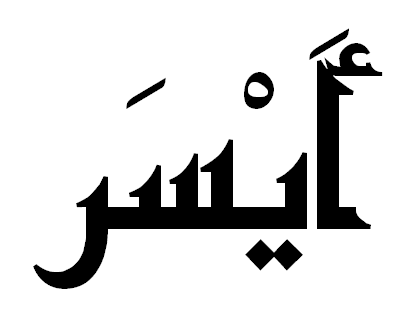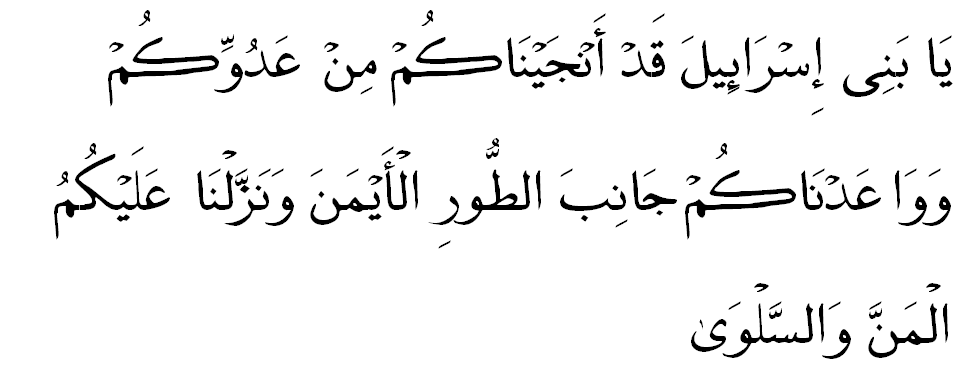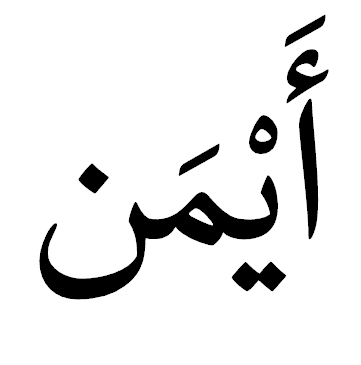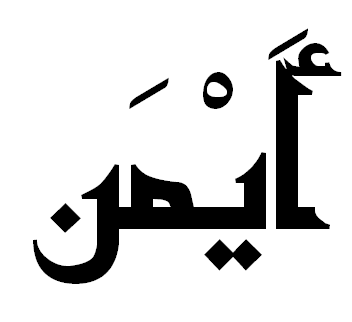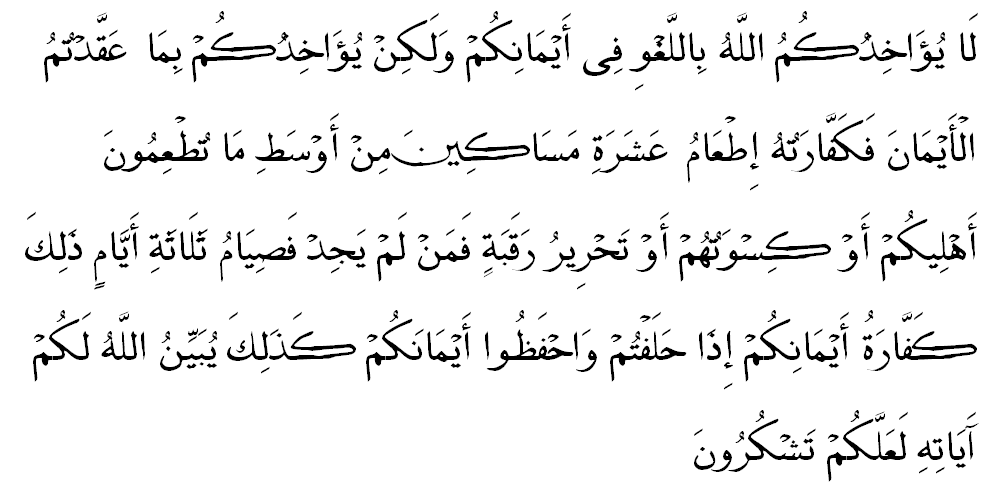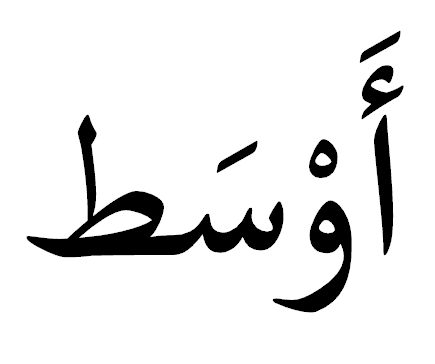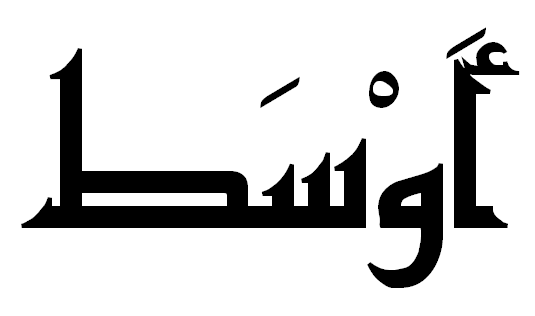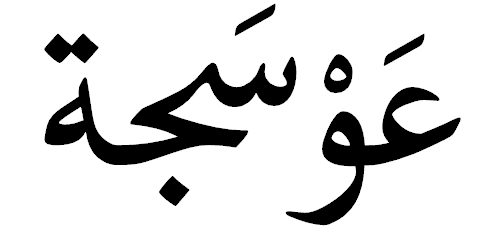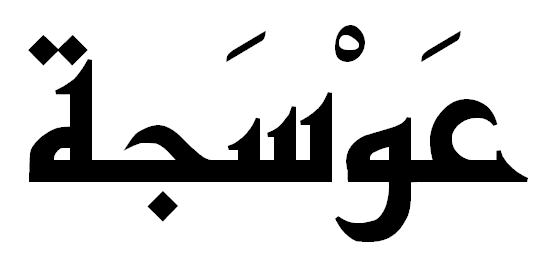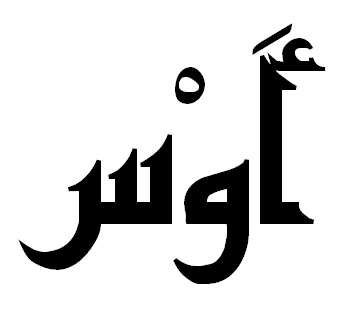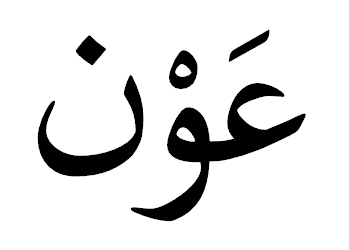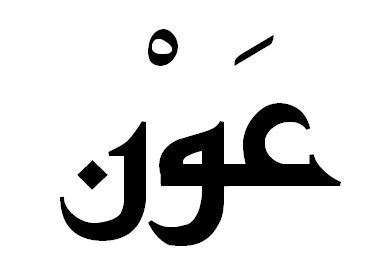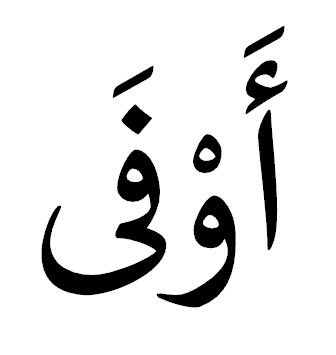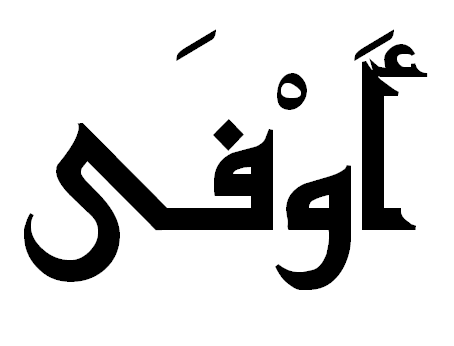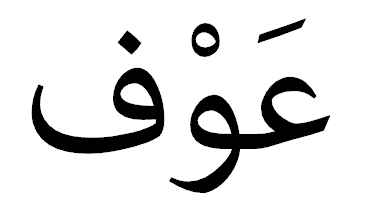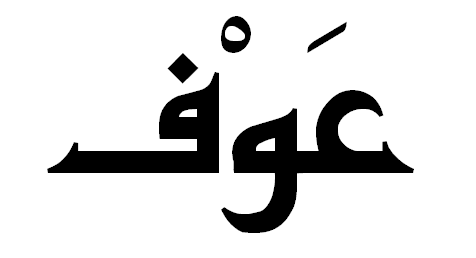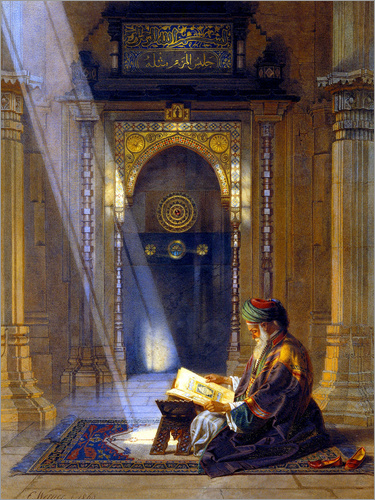
In der Moschee by Carl Friedrich Heinrich Werner (d. 1894)
In this essay, I present a plausible framework in which traditional scholarly interpretations of 4:34 can be considered correct without this becoming support for violence against women. I argue that the error has not been in understanding 4:34 but in scholarly efforts to justify it. There is a new line of justification that has so far been largely ignored and not taken to its conclusion. Verse 4:34 places a duty on men, rather than granting them a privilege, to be enforcers of social order–a heavy task that most men are not meant to enjoy.
Among middle class Muslims wife-beating is highly taboo. Muslim men do not need to look at religious references to decide whether they should approve of wife-beating or not; they justify a highly discriminatory attitude against wife-beaters in cultural and ethical—rather than legalistic—terms. A man who thinks it is acceptable to beat women is so crude, vulgar and uncivilized that he is considered unworthy of befriending or even speaking to. He is excluded from social circles and sympathy is extended to any women unfortunate enough to be associated with him. Yet these men who consider wife-beating completely unacceptable are devout Muslim men who believe in the letter of the Quran, including verse 4:34, which appears to encourage wife-beating.
This leads to a sociological conundrum that is often naively solved by asserting that these men are abandoning parts of Islam in order to be more humane and civilized. As I will argue in this chapter, a sociologically sophisticated analysis shows that it is quite possible to accept and adopt the plain sense of verse 4:34 while remaining humane, civilized and completely opposed to domestic violence.
Islam is often called a misogynistic religion. But if one checks out traditional works of Quranic exegesis, one finds a striking phenomenon: almost every scholar who has tried to interpret verse 4:34, in which a man is given the right to strike his wife in certain circumstances, has been at pains to place restrictions on it, as Karen Bauer discovered in her study of the historical Islamic sources on this issue. There were no feminists in the 8th century pressuring these scholars to be politically correct. We are talking about a time when the Viking campaigns of rape and plunder against the rest of the world were just starting to take off (and would continue for the next three centuries). What was making these men of those “Dark Ages” so sensitive toward women’s rights? I would argue that it was because they were humans taught by Islam to see women as fellow humans, and a chief feature of the human psyche is empathy when this empathy is not blocked due to the dehumanization of others. They had mothers, sisters, daughters and wives and did not like the thought of these loved humans suffering oppression and injustice.
Be that as it may, an uninformed reader who picks up an ancient Islamic text expecting to read things like “beat your wives, they are your property anyway” will be highly disappointed to find the depths and nuances of the Islamic discussions of the issue. Those who study Islam closely, the most important group being Western, non-Muslim scholars of Islam, are forced, often against their expectations, to respect it more the more they learn about it.
Like the scholars of ancient times, and like Prophet Muhammad PBUH himself (as will be seen), many Muslims feel uncomfortable with verse 4:34 of the Quran. It is difficult to find a balanced and holistic interpretation that does not either defend wife-beating or that does not nullify the verse completely. This essay attempts to provide such an answer; taking the traditional meaning of the verse seriously while explaining how it fits within a modern society in which violence against women is rare and taboo (as it should be). To begin addressing the issue, the first principle we can state on this matter is this:
There is no such thing as humanely striking a woman.
Contemporary Islamic scholars who wish to defend 4:34, such as Yusuf al-Qaradawi, often mention that there are various restrictions in Islamic law on the way a man can strike a woman, as if this somehow justifies it. It does not. What needs to be answered is why the Quran allows any form of striking at all.
Let’s now take a look at verse 4:34:
Men are the protectors and maintainers of women, as God has given some of them an advantage over others, and because they spend out of their wealth. The good women are obedient, guarding what God would have them guard. As for those from whom you fear disloyalty, admonish them, and abandon them in their beds, then strike them. But if they obey you, seek no way against them. God is Sublime, Great.
The Arabic word qawwāmūn is translated as “protectors and maintainers” in English or something similar to it, and this leads to the verse sounding nonsensical. Why would the Quran go from the idea of financial support and protection for women to the idea of striking them in the same verse? The problem is that “protector and maintainer” is not exactly what qawwāmūn means. Qawwāmūn means “figures of authority who are in charge of and take care of (something)”. Verse 4:34 is about the issue of authority and law-enforcement within a household as I will explain, the idea of financial support and physical protection is only a subset of it.
Verse 4:34 establishes qiwāma, the gender framework within which Muslim families are meant to operate. The concept of qiwāma, along with that of wilāya (guardianship), have been a focus of concentrated feminist efforts that aim to defuse them in order to create gender equality within Islam. In a chapter of Men in Charge? Omaima Abou-Bakr tries to trace the way the concept of qiwāma developed in Islam. She mentions Tafsīr al-Ṭabarī by the Persian scholar Ibn Jarīr al-Ṭabarī (d. 310 AH / 923 CE) as the “first” work of tafsīr (Quranic exegesis), going on to say:
Hence, not only did al-Tabari initiate and put into motion the hierarchal idea of moral superiority and the right to discipline (ta’dibihinna), but he also instituted the twisted logic of turning the divine assignment to provide economic support into a reason for privilege: ‘they provide because they are better, or they are better because they provide’.
The truth is that the pro-qiwāma interpretation of verse 4:34 starts not with al-Ṭabarī. It started as early as the Islamic scholar and Companion of the Prophet Muhammad PBUH ʿAbdullāh ibn ʿAbbās [ra], in whose work of tafsīr, authored two centuries before al-Ṭabarī, he says:
"Men are qawwāmūn over women" means umarāʾ ("commanders", "rulers", "chiefs"), she is required to obey him in that which he commands her. His obedience means that she should be well-mannered toward his household, she should watch over his property and [appreciate] the virtue of his taking care of her and striving for her sake.
Incidentally, among other works of tafsīr predating al-Ṭabarī, also by two centuries, are the works of Mujāhid and al-Ḍaḥḥāk. Another early work of tafsīr is that of Muqātil bin Sulaymān (d. 150 AH / 767-768 CE), who predates al-Ṭabarī by a century and a half. Muqātil interprets qawwāmūn as musalliṭūn (“having lordship and authority”), a word that is largely similar to Ibn ʿAbbās’s umarāʾ, from the word sulṭa (“authority”, “dominion”). Al-Ṭabarī’s understanding of qawwāmūn was not new; he was following a tafsīr tradition that had been established centuries before him. The pre-Ṭabarī Ibāḍī scholar Hūd bin Muḥakkam al-Hawwārī (died in the last decades of the third century AH), reflecting a North African tafsīr tradition, also interprets qawwāmūn as musalliṭūn.
Abou-Bakr goes on to conclude that al-Ṭabarī was responsible for the changes she mentions in the following passage:
Thus, the original direct meaning of qawwamun/bima faddala (financial support by the means God gave them) developed this way: 1) from descriptive to normative/from responsibility to authority; 2) introducing the noun qiyam (which paved the way to the later qiwamah) as an essentialist notion of moral superiority; 3) from the restricted meaning of providing financial support to a wider range of a generalized status of all men everywhere and at all times; and 4) from a relative, changing condition of material bounty on account of inheritance to an unconditional favouritism based on gender.
According to Abou-Bakr, an innocent and harmless verse 4:34 was over time given a patriarchal, male-centric interpretation by scholars like al-Ṭabarī. Such a narrative, if it were true, would certainly be strong support for the feminist cause. But Ibn ʿAbbās and Muqātil’s aforementioned interpretations are strong historical evidence against her thesis; the notion of qiwāma did not go from being merely about financial support among the early Muslims to something more later on through the harmful influence of tafsīr scholars; qiwāma was thought to be about authority from the time of the Companions. A second and equally serious flaw in her thesis is her considering financial support to be central to the verse’s reasoning. Verse 4:34 actually mentions financial support as the second, rather than the first, rationale for giving men authority over women (I will later discuss what this authority means, whether it can ever be fair and just, and the limitations Islam places on it). Let’s take another look at the relevant part of the verse:
Men are qawwāmūn over women as God has given some of them [i.e. males] faḍl [a preference, advantage, superiority in rank] over others [i.e. females], and because they spend out of their wealth.
The first reason for this authority is not men’s financial support of women, but a faḍl (“preference”) that God has given to men over women, as is recognized by Muqātil. To clarify further, the verse can be rephrased as:
Men are qawwāmūn over women because 1. God has given men a faḍl over women, and 2. because men spend out of their wealth.
The superiority in rank, status or nature supposedly granted to men by God is what comes first, it is the main justification for qiwāma and has nothing to do with financial support as far as one can tell, since financial support is mentioned separately. As I will discuss below, this does not mean that men are morally superior to women, we can use the Quran to argue for the opposite. But to continue the discussion of rank, the Arabic wording of the verse can be said to go out of its way to make the separation between men’s rank and men’s financial support of women clear by using two bi-mās (“because”s) rather than one: because … and because … . It is quite unwarranted to collapse these two given reasons into one and claim that the verse is merely giving men the duty of supporting women’s welfare.
There are many hadith narrations that mention women as deficient in intellect and morality. I make no references whatsoever to those narrations in this discussion; the “preference” I refer to is the plain meaning of the Quranic verse; it is a rank granted by God, the way an army grants different ranks to different soldiers without suggesting that the lower ranks are morally inferior to the upper ranks. The concept of men having a superiority in rank over women is not unique to 4:34, it is also spelled out in verse 2:228:
Divorced women shall wait by themselves for three periods. And it is not lawful for them to conceal what God has created in their wombs, if they believe in God and the Last Day. Meanwhile, their husbands have the better right to take them back, if they desire reconciliation. And women have rights similar to their obligations, according to what is fair. But men have a degree over them. God is Mighty and Wise.
Scholars, such as al-Wāḥidī, Ibn al-ʿArabī, al-Rāzī, Ibn al-Jawzī, Abu Ḥayyān al-Gharnāṭī and Ibn al-Qayyim, mention that women are intrinsically mentally and morally inferior to men in their justification for the Quran’s special treatment of them in the matter of testimony (a man’s testimony equals two women’s, with various differences and nuances among the schools). A strong argument against the mental/moral inferiority thesis is that the Quran treats women as men’s equals throughout, considering them equally responsible for their actions and holding them to the same standards. If women were as irresponsible and foolish as children as some scholars suggest (such as al-Wāḥidī, Ibn al-Jawzī and al-Rāzī, who mention that women are perma-adolescents, never maturing), it would have been only fair to treat them as children in the matter of duties and punishments, yet the Quran treats them as complete humans. Karen Bauer writes:
But if women were deficient in rationality, then why did they have spiritual responsibilities similar to men? Although the majority of exegetes simply took inequality for granted, several explained why such inequality was fair, just, and according to God’s will. Such interpretations may reveal more, however, about the worldview of the interpreters than they reveal about the Qurʾān.
A modern work of tafsīr that criticizes the infantilization of women in classical tafsīr works is Tafsīr al-Manār by the Egyptian reformist scholars Muhammad Abduh (d. 1905 CE) and Rashid Rida (d. 1935 CE).
Before we go on, we can summarize the evidence in support of the classical view of qiwāma as:
- Classical scholarly works, such as those of Muqātil, al-Ṭabarī and al-Rāzī.
- The opinion of the Prophet’s Companion Ibn ʿAbbās.
- The wording of the verse, in which the primary rationale for qiwāma is given as a superiority in rank granted by God, rather than financial support.
- The fact that the verse seems to absurdly switch from the issue of financial support to the issue of discipline if we accept the feminist interpretation that qiwāma has to do with financial support alone. But if we accept the classical view that it is about authority, then the verse makes perfect sense: The first part asserts that men are the chief authorities in their households; the middle part gives two reasons for this; the last part deals with the issue of what a man should do when this authority is challenged.
Laleh Bakhtiar’s interpretation of “and strike them” as “leave them” in her Sublime Quran is so far-fetched that it is not worth addressing. Men in Charge? does not give it a mention and assumes that “strike them/beat them” is the correct interpretation. Despite the book’s attacks on traditional qiwāma, the question of why the verse mentions striking women at all is strangely not addressed in the book as far as I could find. It is quite far-fetched to claim that a verse that allows the male to strike the female is innocent of patriarchal concepts.
Another line of attack against qiwāma has been that of claiming that Quranic verses and principles are historically localized; they applied in the Arabia of the 7th century CE, but they do not necessarily apply today. Addressing this criticism would require another essay. The belief that Quranic principles are historically localized is debatable, it is against the understanding of the vast majority of Islamic thinkers and scholars. We can localize a verse in its historical context to understand its meaning and intent, but once we have extracted these, they should be generalized to all times and places. Historical localization would allow one to nullify almost any Quranic concept they want by arguing that it only applies to a particular time and place and not to another. The common and common-sense understanding of the Quran is that while its context can help us extract its meaning, the meaning itself is universal. The default assumption regarding the meaning of any verse should be that it is designed to be applied by all humans for all time. Overwhelming evidence should be needed to prove that the meaning of a particular verse has expired or is irrelevant today. In the case of qiwāma, there is no evidence at all that it is irrelevant today. There certainly is overwhelming desire among a certain group of intellectuals to throw the concept away, but that does not constitute evidence. Working for women’s rights is a good thing, but destroying the foundations of our understanding of the Quran in the process is not.
If the Quran was written by the Prophet PBUH, then it would make sense that its meanings would expire and would be limited to the narrow context of 7th century Arabia. He was only a human and could not foresee all eventualities. But we believe the Quran is from God, it is His unchanged Words, which means that we have to treat it like a book written by an infinitely wise person who could foresee the fact that humanity would continue for the next 100,000 years (or however long). If something was supposed to only apply to one circumstance and not to others, then God would have told us so. What we believe is that the Quran was written by the Creator to be applied for all time. Saying that God was so short-sighted that He gave a universal command in His book that does not apply any longer is a great insult against the Creator of the universe. The question then becomes about the nature of God: mainstream Muslims believe that the Quran is from the same Creator who designed the laws of quantum mechanics and who watched the universe age for billions of years before humans started to walk the earth. When such a God tells us men should have a rank above their wives in their households, He is not stuck in the mindset of 7th century Arabia but is speaking from a billion-year perspective. Those who argue for historical localization are saying the opposite; they are saying that God was not intelligent and wise enough to see beyond 7th century Arabia. Therefore a person who argues for historical localization should first prove to us that God is not as intelligent and wise as we tend to think.
At this point, assuming that the classical interpretations of the verse are correct, we will examine how such a gender framework could be justified among civilized and self-respecting humans.
Domestic Violence in Islam
Domestic violence, as the phrase is commonly understood, is prohibited in Islam; a woman has the right to not be abused by her husband. This is the general rule; Islam does not tolerate cruelty and injustice toward anyone, whether man, woman, child or even animal. But verse 4:34 establishes an exception in the matter of authority and discipline in a household. The point of this verse is the establishment of a certain type of order within an Islamic household.
To explain how 4:34 can be implemented without this leading to domestic violence, the best analogy and the most relevant I have found is that of law enforcement. Throughout the world, the police have the right to strike a person who is about to break the law, for example a person who wants to set fire to a building. The police are required to sternly warn the person to stop their behavior, and if they do not, they have the right to intervene physically and subdue the person to prevent them from doing harm. The right of the police to strike any citizen they want given the appropriate circumstances establishes a certain type of order within society. It does not lead to a reign of terror; look at a peaceful and quiet Western town and you will find that that peace and quiet is protected by the existence of a police force that has the right to use violence when necessary.
In the West, law enforcement is the job of the police; they are given the right to use violence when necessary to carry out this job. Islam creates a second law enforcement jurisdiction that is non-existent in the West, that of the family, with the power of policing given to a husband (rather than a police force) within this internal family jurisdiction (later on I will discuss possible reasons for why this power is given to men rather than women).
Similar to the police, men are not allowed to abuse this authority. Police brutality and husband brutality can both be severely punished by the law. Verse 4:34 gives a man the authority to police his household. If his wife is about to do something highly damaging, such as trying to invite a lover into the house, he has the right to sternly warn her to stop and to use force against her if she does not.
Here, it should be stated that under Islamic law a woman should have the right to divorce any time she wants. If her husband is abusive, besides having access to agencies protecting women, she should also be able to threaten to leave him, and the police should be there to protect her rights and prevent her from being kept as a wife against her wishes. Middle Eastern countries have been notoriously bad at protecting women’s rights, this is slowly changing, and Islam can actually be used as justification for creating agencies that protect women’s rights.
Islamic law creates this situation inside a family:
- A husband has the right to police his household and to use violence in the extremely rare case where his wife wants to do something completely unacceptable in their culture and society.
- A woman has the right to leave her husband any time she wants.
- A woman has the right to be free from cruel treatment and abuse, and has the right to enjoy the police’s protection from abuse.
In the vast majority of marriages (perhaps 99.99%), husbands will never have to use their right to violence, the same way that in a peaceful society the vast majority of people are never beaten by the police, despite the fact that the police have the right to strike any citizen when necessary. Islamic law, similar to Western law, creates a certain social order that does not do violence to anyone as long as no one tries to break the law. A husband’s right to act as policeman is irrelevant except in the extremely rare case when a wife, for whatever reason, 1. insults and threatens him by her actions, 2. does not listen to admonishment and 3. does not want a divorce. That is quite a ridiculous situation that very few couples will find themselves in.
A person may ask, if this verse truly applies to only 0.01% of marriages, why would the Quran have a verse about it? For the same reason that Western law has many clauses on the use of violence by the police despite the fact that only 0.01% of citizens are ever subject to police violence. The right to use violence is what matters here, not the actual use of violence. When a Western town gives the police the right to use violence, they do not do so because they like to watch the police beat people, but because they know that if the police did not have the right to use violence, they could not deal with the extremely rare cases in which violence is needed.
You cannot establish social order without giving someone the power to enforce it. A law is useless unless there is someone who can enforce it, and the enforcement of law in human society requires the power to use violence (only the power, not the actual use of violence). While Western law defines a certain legal code enforced by the police where necessary, Islamic law defines such a code, and in addition to it, defines internal family law (non-existent in the West) that husbands can enforce through violence where necessary.
Senseless Beatings and Cultural Mores
When talking about 4:34, people’s minds often jump to an imaginary or real wife who is beaten by a cruel husband. But that has nothing to do with 4:34. The violence in 4:34 is similar to police violence; if it is cruel, if it is senseless, if it is unnecessary, then that is forbidden and should be punished by law. 4:34 only justifies violence in cases where the couple’s culture considers the violence justified. The woman’s own relatives should be able to look into the case and agree that the husband’s actions were justified.
What situations could possibly justify a husband striking a wife? This is similar to asking what situations could possibly justify the police striking a citizen. If we think of good citizens being beaten by the police, we naturally find that cruel and unjustified. So to correctly answer the question, we have to think of bad citizens, those who do deserve violence according to the law worldwide. A bad citizen would be one who is mugging someone, or trying to steal a car, or trying to rape a woman. People will generally agree that police violence is justified in preventing such citizens from carrying out their intentions.
Verse 4:34 deals with the issue of bad wives, the way that Western laws allowing police violence are there to deal with the issue of bad citizens (I will address the question of bad husbands later on). In regards to good wives versus bad wives, verse 4:34 has this to say:
The good women are obedient, guarding what God would have them guard. As for those from whom you fear disloyalty, admonish them, and abandon them in their beds, then strike them.
The Arabic word that is rendered as “disloyalty” above is nushūz, which according to al-Rāzī has a meaning close to “mutiny”, it is when a person acts as if they are superior to a figure of authority (as in a soldier acting in disregard of an officer’s rank). It literally means “to consider oneself superior”, the word can be used to describe a patch of land as being higher than another. Interestingly, it is also used in the Quran in reference to a man’s misbehavior toward his wife, which provides an illustration of the fact that a husband is not an absolute authority; he too can be mutinous against the higher authority of the law if he is abusive or negligent toward his wife.
The word nushūz is vague and does not clearly define what situations deserve a strong response and which ones do not. I believe this is in order to leave it to each family, culture and society to decide it for itself. All wives probably know what their husbands’ “deal-breakers” are, things that he would consider a severe insult and a betrayal, and these things can be different for different people. The most flagrant case of nushūz is a wife trying to have an affair. In general, nushūz is any case in which a wife acts in disregard and disrespect to the Islamic social order that the Quran wants to establish within the family. Among forms of nushūz explained in the Islamic legal literature are, many of which sound antique or somewhat irrelevant today:
- A woman refusing to engage in sexual intimacy with her husband without a valid reason. Ibn Rushd al-Jadd (grandfather of the more famous Ibn Rushd), in answer to a question, says that a man is not allowed to strike his wife if she refuses sexual intimacy unless she is doing it out of malice and spite and he fears she will continue to become more rebellious.
- Refusing to do housework. The Ḥanabalī scholar Ibn Qayyim al-Jawzīya (d. 751 AH / 1350 CE) considers it a duty, saying that the marriage contract assumes that the woman perform such services, while the Shāfiʿī jurist Abū Isḥāq al-Shīrazī (d. 476 AH / c. 1083 CE) does not consider housework one of her duties. According to the Spanish Malikī scholar al-Qurṭubī (d. 671 AH / c. 1273 CE), whether housework is obligatory depends on her social class; it is not obligatory for upper class women who expect their husbands to hire servants.
- Refusing to join the man in his home after marriage without a valid reason.
- Inviting someone into her marital home against her husband’s wishes.
A technical, modern and pluralistic definition of nushūz would be:
A woman's acting in flagrant disregard of the terms implied by her marriage contract in her particular culture.
Is it acceptable for a husband to use violence against his wife for refusing him sexual intimacy, even if she is doing it maliciously, for example as a form of emotional blackmail? Most, if not all, people today will probably say violence is not justified; they should work out their issue peacefully or get a divorce. And that is the correct general principle today. What constitutes scandalous behavior that deserves a decisive response from a husband can change as humanity develops.
The Quran does not give us a strict definition of nushūz, allowing us to make its scope wider or narrower as our reason, conscience and cultural experience demands. Any case of a woman suffering violence in a way that is clearly unjust and unreasonable can automatically be considered outside the bounds of 4:34: In a Muslim society, a woman should never have occasion to say that her husband beat her without a valid reason. If that is true, her husband should be punishable by law, as is the opinion of Ibn Ḥazm. Scholars, however, have historically differed greatly on whether and when a man can be held accountable for striking his wife, some going as far as practically prohibiting all violence and others giving a man carte blanche to beat his wife whenever he wants. But thanks to the vagueness of the concept of nushūz, we are under no strict limitation in our ability to give it a reading that fits reason and conscience. In my proposed interpretation of 4:34, if a wife was struck by a husband, it would only be justified in situations like this:
I tried to cheat on my husband, he found out and sternly warned me to give up the idea. I did not. He told me I should get a divorce if I do not want to be with him anymore, but what I want is to stay married to him and enjoy the benefits that come with it while having a lover on the side. We had a fight and he physically subdued me and took my phone away from me so I would not be able to speak with my lover.
In a Western country a husband in the above situation is required to let his wife do whatever she wants, only having recourse to divorce. The police will probably laugh at him if he was to give them a call and complain that his wife wants to sleep with another man. Under Islamic law, however, a husband is given the authority to be the law-enforcer himself in such a case. This creates a situation in which there is zero tolerance for a wife acting against the terms of her marriage. She is required to either accept to live amicably and faithfully with her husband or to get a divorce. Verse 4:34 ensures that there will be no “in-between” situations where a wife is only half faithful or respectful toward a husband, for example staying with him for the sake of the children while doing whatever she wants in her private life without concern for his interests. She is either fully committed to her life with her husband or she gets a divorce. While Western law tolerates all shades of commitment from full commitment to zero commitment between a husband and wife, Islamic law allows only full commitment or divorce, and gives the husband the right of violence to ensure that this will be the state of things in his family.
Laws versus real-life
Above, I have explained the theory behind verse 4:34. But that is only half the picture. Verse 4:34 creates a certain social order, a certain type of society, that an outsider may be completely unable to imagine from the wording of the verse. The type of society it creates is one in which it is unthinkable for a woman to flagrantly act in opposition to her husband and his household (the most glaring example being that of infidelity). It is as unthinkable for her to act thus as it is for a Western citizen to think of counterfeiting money. While in the West we do not live under a police reign of terror, we know that if we were to do something that severely threatens social order, such as making counterfeit money, law-enforcement will have something to say about it. We do not need the police to strike us to not make counterfeit money. We just know that in our society, in our social order, the making of counterfeit money is totally unacceptable and will bring down violence on the person who tries it.
In the same way, in an Islamic society, a woman knows that within the social order she lives in, she cannot act flagrantly in opposition to her husband; she knows that this is totally unacceptable in her society and can bring down violence on her. If there is a need for her to oppose her husband, she has the right to argue with her husband, to demand the support of her family and his family, to demand the support of women’s agencies, to sue him in court and to threaten divorce. These things ensure that her husband cannot abuse his authority and that her rights are not neglected. What she does not have the right to is acting in a way that damages her husband and his household. She is free to get a divorce; but while she chooses to be with him, she has to act in good faith toward him.
The “Rule” of Husbands
Giving husbands the right of policing does not make them tyrannical rulers, the same way that giving the police the right of policing and striking citizens does not make them rulers in society. Husbands and the police are both subject to higher laws that restrict their powers. In an Islamic society, both the husband and wife are subject to the law and its various restrictions. They are both servants of God who are required to do their best to please Him. One of them, the husband, has the powers of the police delegated to him to deal with the extremely rare case of having to enforce internal family law. It is true that no sensible wife would act in a way that threatens her husband and his family, similar to the way that no sensible citizen would act in a way that threatens society and requires police action. But not all wives or citizens are sensible, therefore the law sees the need to give certain people the right to use violence against those rare wives or citizens that do not act sensibly.
In focusing on the extremely rare situations when violence becomes necessary, discussions of Islam and domestic violence ignore the overwhelming majority of marriages in which a husband striking his wife is considered unthinkable. It is like focusing on police brutality in a peaceful town and ignoring the 99.999% of the citizenry who live in peace and never have any dealings with the police.
A husband who habitually beats his wife is similar to a policeman who habitually beats citizens for no reason. Such a husband or policeman should be severely punished, and if they cannot stop their violence, they should be fired from their jobs (a judge should force the husband and wife to separate, and should fire the policeman).
Why Make Husbands Policemen?
Even if it is admitted that the mere right of using violence against a wife does not lead to an epidemic of domestic violence (and my experience of Muslim societies in Iran, Iraq and the United States illustrates this beyond doubt), one may doubt if giving men the authority to act as part-time policemen in their households is the best way to organize society.
The Quran’s theory is that society functions best when husbands are recognized as authorities in their households, with the power to act swiftly, decisively and even violently when their interests are seriously threatened.
The feminist (etc.) theory is that society functions best when a husband and wife have equal shares of authority in their households, somewhat similar to a country or company having two presidents.
Which theory is true? A great many scientific studies would be needed to find out beyond reasonable doubt which type of society functions best. Such studies should try to answer these questions:
- Do women in devout Muslim households suffer more or less domestic violence compared to other women?
- Are women in devout Muslim households more or less likely to suffer depression than other women?
- Are women in devout Muslim households happier and more fulfilled or less compared to others?
- Are children brought up in a devout Muslim family more or less likely to suffer trauma compared to children brought up in a non-devout Muslim family, compared to children brought up in non-Muslim families from societies of equal development and prosperity?
- What type of society is more sustainable? Devout Muslim societies are sustainable in that families can produce enough children to replace the parents. Western societies are all failing at this; they are all slowly going extinct.
Note the keyword devout. Considering an alcoholic who regularly beats his wife representative of Islam just because he calls himself Muslim is something only a propagandist would do. Any study of the effects of the Quran’s teachings, including the teaching in verse 4:34, should focus on people who actually take the Quran’s teachings seriously.
My contention, and the Quran’s, is that a devout Muslim society will function better and will be happier than either a non-devout one or a modern, liberal and irreligious one.
Verse 4:34 explains why God considers men worthy of the authority He has given them in their households:
Men are qawwamūn (keepers, protectors and authorities) over women, as God has given some of them an advantage over others, and because they spend out of their wealth. The good women are obedient, guarding what God would have them guard. As for those from whom you fear disloyalty, admonish them, and abandon them in their beds, then strike them. But if they obey you, seek no way against them. God is Sublime, Great.
The Quran gives two reasons:
- Men are inherently (i.e. genetically) suited to the role of being figures of authority in their households
- Men are the financial maintainers of women (by Islamic law)
The Quran’s contention, therefore, is that a family functions best when a man is the chief authority, because it is in the nature of human families that they function best when a man is the chief authority. We have no convincing scientific evidence for this at the moment, but we may have it in ten or twenty years. According to the Quran, humans have evolved (for a plausible reconciliation of Islam and evolution see my essay: God, Evolution and Abiogenesis) in a way that makes males different from females, and this difference justifies different roles within a relationship.
This difference does not mean that a man is given the right to do whatever he wants in his family. He is subject to the law and any abuse of his powers can be punished by law.
The question of whether men are really evolutionarily suited to be the chief authorities in their families cannot be settled by argument. It requires hundreds of scientific studies. Simply thinking of the 1% of men who abuse their powers tells us nothing about the 99% who do not. You cannot judge social policy by thinking of a few glaring bad examples. You have to study all of society. You cannot judge verse 4:34 by thinking of the hundred families in a Muslim city in which the husbands are abusive and ignore the 10,000 families in which the husbands are not abusive.
Bad Husbands
The passage 4:128-130 of the Quran deals with the issue of bad husbands, and refers to them as mutinous as already mentioned:
If a woman fears mutiny or desertion from her husband, there is no fault in them if they reconcile their differences, for reconciliation is best. Souls are prone to avarice; yet if you do what is good, and practice piety—God is Cognizant of what you do.
You will not be able to treat women with equal fairness, no matter how much you desire it. But do not be so biased as to leave another suspended. If you make amends, and act righteously—God is Forgiving and Merciful.
And if they separate, God will enrich each from His abundance. God is Bounteous and Wise.
Verse 4:35 is also relevant:
If you fear a breach between the two, appoint an arbiter from his family and an arbiter from her family. If they wish to reconcile, God will bring them together. God is Knowledgeable, Expert.
The above verses are taken to mean that in the case of bad husbands, a wife should either have recourse to their families, or to government-appointed judges, who have the right to try to reconcile their differences or to enforce a divorce according to the wife’s wishes.
Wives, unlike husbands, are not law enforcers in their households. Due to the genetic differences between the sexes, it makes no sense to ask a wife to use violence against her husband when necessary; men are physically stronger than women in the overwhelming majority of cases and could do dangerous physical harm to a woman. Therefore the woman instead has recourse to a higher authority than her husband when her husband is mutinous. That higher authority is her family, his family, government-appointed judges, and women’s agencies if any are available.
A modern, civilized society will ensure that women always have easy access to this higher authority that can swiftly deal with bad husbands when necessary.
Devout Muslims and Habitual Wife-beaters
It is my contention that the more devoutly Muslim a man is, the less likely he is to be a wife-beater. There are hundreds of verses in the Quran that call him to be kind and forgiving. A single verse that allows violence in extremely rare circumstances is not going to be sufficient to wipe out the teachings of these hundreds of other verses from his mind. Any person with sufficient intelligence to understand the Quran will feel restricted by it in his ability to be mean and violent toward others, including his own wife and children, rather than feeling encouraged by it.
I have no respect for a man who beats his wife and will never befriend a man who thinks he has the God-given right to beat women when the mood strikes him. I am not unique in this regard. In the devout Muslim society I come from, a man who is known to beat his wife is considered a low-life, a person unworthy of befriending. Yet we are all Muslims who take the Quran seriously, including verse 4:34.
Verse 4:34’s main function is a defense of Islam’s “patriarchy”. It makes it impossible to give the Quran a feminist reading that sees men and women as exactly equal. It gives men higher authority in their households and goes as far as delegating some of the powers of the police to them. This is a completely anti-feminist way of organizing society, and for this reason feminists who wish to “feminize” the Quran will be forced to either ignore 4:34 or to give it far-fetched interpretations (as Laleh Bakhtiar has done).
Those who have occasion to speak of 4:34 are generally middle and upper middle class people for whom domestic violence is unthinkable (and it is that way for me too). But saying that 4:34 is unnecessary because our men and women are mature and sensible enough to act as honorable adults toward one another is like saying the police are unnecessary because we sensible people do not plan to break the law.
The police’s main function is not violence; it is the protection of social order. By using violence against the very small minority of citizens who wish to break the law, a certain type of order is created that everyone follows. The same applies to verse 4:34. By giving husbands the right of violence against the extremely small minority of wives who desire infidelity and other ways of damaging their families, a certain type of social order is created where wives and husbands are required to be 100% committed to their families. 4:34 establishes a social order in which wives are either fully committed or get divorces. 4:35 and 4:128-130 establish a social order in which husbands are either fully committed are get corrected or punished by higher authorities.
The vast majority of wives are already fully committed and do not need violence to make them so, the same way that the vast majority of citizens are fully committed to being good citizens and do not need violence to make them so. But it is foolishness to say that social order does not need a policing power to protect it. Without a violent power protecting against threats to order, social order will break down, as seen in cases where the police abandon a town (such as during a police strike), which quickly leads to looting and rioting by irresponsible citizens.
The Islamic social order that requires wives to be fully committed functions peacefully and without violence in the overwhelming majority of cases; 4:34 ensures that there is a policing power that protects this social order and can respond to those extremely rare cases where this order is threatened.
People have the right to wonder if this is the best way to create happy families and societies. Without a great number of unbiased scientific studies there can be no conclusive answer. It might seem “obvious” to someone that this is not a good way to create happy families and societies, but this is just a personal bias unless they can provide statistical data to back up their opinion. There are faithful and loyal wives among both Muslims and irreligious people, but if devout Muslim wives are on average 50% more likely to be loyal, and their families are 20% more likely to be happy and to avoid being broken up, then that is all we need to know to tell us that we should not be too quick to judge the sociological consequences of the Quran’s teachings.
As Muslims, we believe that God knows better than anyone else how families and societies should be organized, therefore even if we dislike the idea of violence against women (as perhaps all of us do), we have to believe that God knows best. Even the Prophet Muhammad PBUH had reservations about 4:34. Al-Rāzī, in his aforementioned exegesis of verse 4:34, mentions a narration from Ibn ʿAbbās in which he says that a woman came complaining to the Prophet PBUH about being struck by her husband. From the passage, it appears that the Prophet PBUH would have liked to punish the husband according to the law of qiṣāṣ, but verse 4:34 is revealed to him confirming that the husband was within his rights. The Prophet is quoted as saying “We wanted something, but God wanted another thing. And what God wants is best.”
To summarize, verse 4:34 creates an informal police force made up of husbands. They are charged with the protection of the integrity of their families and are given the power of violence as a last resort in the carrying out of this duty. Any use of violence by a husband that falls outside of this definition can be punished by the law. The vagueness of “mutiny” enables each culture to decide for itself whether a case of violence was justified or whether it was unjustified and therefore deserving of punishment by the authorities.
From the above discussion, feminist critiques like the following (from Men in Charge?, chapter 7) will be seen to be quite beside the point:
Dina, a lawyer who founded and currently leads an NGO in one of Cairo’s poorest areas, added another layer to this new understanding of qiwamah. She noted, ‘Since women and men today have equal opportunities to pursue knowledge, with women sometimes excelling more, it would be indeed irrational to expect an illiterate man to have qiwamah over a female university professor, in the sense of authority.’
It would be irrational for a female university professor to marry an illiterate man to begin with. Considering the less absurd example of a female university professor married to a male university professor, it will be seen that the man is given the authority to defend his household, an authority that he will likely never have to enforce, since his college-professor wife is likely intelligent and self-respecting enough, like most middle class wives, to not act like the immature and out-of-control person described above as a bad wife. Saying it is irrational for this male professor to have qiwāma over his wife because of his wife’s qualities is similar to saying that it is irrational for a peaceful town to have a police force. Islam gives him policing power to deal with the extremely rare cases in which it might be needed. If he is blessed with a good wife he will never have recourse to it and will be thankful for that, the way that the police force in a peaceful town never have recourse to violence against the town’s citizens. The above excerpt from Men in Charge? relies on the paralogism that:
- Good wives do not need qiwāma and its enforcement in order to make them behave in constructive ways in their families.
- Therefore qiwāma-enforcement is not needed.
Qiwāma-enforcement, as has been discussed, is entirely about bad wives, therefore the fact that good wives do not need it is irrelevant. What they say is similar to:
- Good citizens do not need law enforcement in order to make them behave in constructive ways in society.
- Therefore society does not need law enforcement.
If it is admitted that qiwāma-enforcement is about dealing with bad wives, a person might argue that this means that in a society of enlightened and educated individuals we can do away with qiwāma, living as if verse 4:34 does not apply to us. This is the argument of certain activists; qiwāma may have made sense in a certain time and place, but it is certainly quite out of place in modern society. This thinking relies on the assumption that there are no relevant differences between men and women that would justify giving men higher authority. The assumption is that men and women are exactly the same when it comes to everything that matters; therefore there is no sense in treating them differently.
But is that assumption true? 4:34 says that there is something intrinsic about men that justifies God giving them authority over their wives. There is some genetic/evolutionary reason why giving men authority over their wives leads to better results for everyone involved. If that is true (and we either have to assume it is true because the Quran says it is, or abandon the Quran for containing a falsehood), then giving men authority over their wives in a modern family is just as relevant as it would be in an ancient family. There are thousands of situations that come up in a modern family’s life in which the question of authority is significant. Should the wife accept that particular job? Should the son be allowed to go out with that group of friends? Should the daughter be allowed to wear that particular dress? Qiwāma allows for discussion and debate while giving the man the right of having the final word, because of a superiority in rank that God has given to him, and because he spends out his wealth to care for his family (the reasons given in 4:34). But if the husband’s opinion is absurd, his wife can appeal to higher authorities to correct him.
A feminist who appreciates everything said above may go on to say that she does not like to live with a husband who thinks he has the right of having the final word. But even in this case she is misunderstanding the purpose of 4:34. If she marries a husband as intelligent and educated as herself, he will probably be the type of person to work out all issues of authority without having to resort to saying that God has granted him the final word. It is only an extremely socially inept man who insults his wife by telling her he has authority over her. An intelligent and intellectually mature Muslim man will instead treat her like an equal, the way Prophet Muhammad PBUH appears to have treated his wife Aisha.
The final remaining feminist criticism would be her saying that she does not want to be subject to a man’s authority no matter how good of a man he is. She wants to be free and make her own way in the world without reference to a man. Islam’s answer is that she is free to not get married, but the general framework of marriage within Islam will always be the qiwāma framework, which is prescribed in the Quran and accepted by the vast majority of the world’s Muslim men and Muslim women. Rejecting qiwāma is similar to rejecting the Ramadan fast. One can come up with various logical reasons for rejecting fasting (it reduces worker productivity, for example), but since it is God who prescribes it, we have no option but to do as He says. Additionally, if 99% of women are quite happy to live under qiwāma while 1% of them dislike it, whose opinion is more authoritative? The radical feminist answer would be that any woman who refuses to agree with feminism is foolish and her opinions do not count. The humanist answer would be that as humans, their worth does not derive from how feminist they are, and if the majority of intelligent and educated Muslim women do not have a problem with qiwāma, that is very strong evidence in favor of the traditional Islamic family.
Many women can probably be convinced to dislike qiwāma in the name of women’s rights. This is similar to the way that even today it is easy to convince workers to support communism despite the horrors it led to in the 20th century. Both feminism and communism promise a specific class of people increased rights, powers, and privileges, and few humans have the wisdom to reject such things when offered to them freely. Ask any Muslim woman, especially an unmarried and college-educated one, “Do you want as much authority as your (future) husband or less authority?” and she will probably say she wants as much authority. This is similar to asking a worker, “Do you wish your boss was legally required to share much of his wealth with his employees?”, the answer will almost certainly be a “Yes!” The problem is that we cannot build a civilization based on answering the average person’s desires. Legal systems and social order have to be designed by mature people who can foresee the long-term results of their actions. Ending qiwāma might make a small minority of women happy, but what will be the long-term costs to the rest of society? If it is said that a woman should not have to sacrifice her freedom and independence for the sake of society, the answer is that actually she does. Islam asks both men and women to sacrifice many of their desires for the sake of the greater good. They are required to limit sexual partners even if this reduces their fulfillment; they are required to pray at inconvenient hours; they are required to not enjoy alcohol even though it is highly pleasurable to drink and many people are capable of enjoying it without becoming alcoholics. Pious Muslim women by and large see no problem with qiwāma because it is one of dozens of limitations God places on women supposedly for their own good and the good of those around them. A Muslim woman either has to accept that God is right in His commandments or that He is wrong and she can do better outside of them.
Interfacing With Secular Law
It should be mentioned that most legal systems do not recognize the validity of the use of violence against a wife in any circumstance except in that of physical self-defense, and even then a man may be considered guilty until proven innocent. For this reason Muslims living under such laws are required to follow those laws. By the fact of accepting to live under a secular legal system and enjoying its protection, one also accepts to abide by its limitations. Upholding the “social contract” inherent in living under a secular legal system takes precedence over applying parts of Islamic law that conflict with it. In Islam the protection of life, property and dignity are the prime purposes of the law, so a secular legal system that affords these things but prohibits applying certain branches of Islamic law is still largely in accordance with Islam.
Fighting Violence Against Women
While 4:34 teaches us that there are extremely rare cases in which violence against a wife is justified, this should not make us indifferent toward cases of domestic abuse. The Quran is opposed to injustice and cruelty, and needless to say this means that we should be opposed to injustice and cruelty toward women. How can a man carry out the “greater jihad” of working to make the world a better place if he has created a cruel and tyrannical kingdom at home? Until recently Muslim societies (and of course non-Muslim ones too) were quite apathetic toward the issue of cruelty toward women. Things seem to be improving.
An intelligent legal theorist should have no trouble seeing that giving someone policing power is bound to lead to abuse if there is no oversight, therefore the creation of agencies protecting women against abuse should be an essential part of any developed Islamic legal system. Women should enjoy all of the protections of a country’s constitution and should have recourse to the authorities if they suffer abuse on the hands of their husbands, fathers or others.
It is not contradictory to fight violence against women while defending verse 4:34. It is similar to fighting police brutality while defending the police’s right to use violence when needed.
Men in Charge or God in Charge?
Most wives in Islamic societies, like all societies, have a healthy level of skepticism toward their husband’s wisdom and authority. For Muslim wives, it is not the husbands themselves who deserve their submission except in cases where the husband is truly admirable according to the wife and the wife is has type of personality that enjoys submission. Rather, it is their social order that teaches them to respect the authority of their husbands. They do it largely out of respect for their societies and relatives, not out of respect for their husbands’ personal virtues. It is respect for the office of husband, not the husband himself.
This is a crucial point in understanding Muslim societies. A woman’s heart and soul does not have to be submissive toward her husband (it often is not) for her to live within the Islamic framework. Instead, it is her allegiance to her society and its social order that makes her respectful toward her husband’s position. She respects both the offices of wife and the husband and acts according to the demands of these offices. The husband can never hope to be the ideal husband who satisfies everything the office demands. But if he is a good husband, he will at least attempt to embody the ideals of that office. And the wife judges him accordingly: if the husband embodies the ideals of his office, she will respect him enough to try to embody the ideals of her office.
What is seen in well-educated, cosmopolitan and devout Muslim societies is not a rule of husbands, but a rule of God. It is a woman’s respect for her God-inspired social order that makes her respect her husband’s authority.
And if the belief in God declines, so does a woman’s respect for her husband’s authority. This is very strong proof for the fact that husbands are not “in charge” even in highly conservative, devout Muslim societies. It is God who is in charge. When belief in God declines, so does belief in the authority of husbands. This shows that the authority of husbands is not something the husband creates or enforces himself—most husbands could never do that. It is belief in God and social order that comes from this that creates and enforces that authority for him.
Wives in Islam are not required to be servile and submissive toward their husbands. They are required to be servile and submissive toward God, and that means they respect what the Quran tells them about the authority of their husbands. But, the more intelligent and educated they are, the more skeptical they are toward their husbands and the more independent of mind they are. This is not un-Islamic even if some scholars and preachers say it is. A woman can remain perfectly skeptical and independent while living with a husband and respecting his authority out of respect for God, not for him. If he deserves respect, then she will give him respect as well.
The same way that a Muslim is not required to give up his or her humanity to be Muslim, a Muslim woman is not required to give up her humanity to be a wife. She can be as independent-minded as any feminist while, out of love and respect for God, enjoying and respecting her position as wife and her husband’s position as husband. The husband’s own power and authority is quite irrelevant her. And since the husband has higher authorities that can correct and punish him, he is not allowed to abuse the power and authority delegated to him.
Ideally, therefore, a woman remains independent of mind while accepting the office of wife out of respect for God, her family and her society. She will love her husband if he deserves it while taking him to task for any form of demeaning treatment.
It is true that she loses some freedom when she becomes a wife. But what she gains more than makes up for it; a higher social status, increased respect from those around her, access to her husband’s wealth and society. To a devout Muslim woman, marrying a reasonably good man provides an increase in her power and position in life. It is from this point of view that Islamic marriage should be understood. She goes from being beholden to her parents and siblings to being beholden to one man who often loves her and is ready to do her bidding. It is natural that she should see this as a gain, not a loss. And it is for this reason that Muslim girls, similar to the girls in Pride and Prejudice, love the idea of marrying even when they are highly respected and adored in their own families and are free to get an education and career. Marriage for them means the start of a new stage in life in which they build something beautiful and make their important contribution to society through working on it (a family that is well-integrated into society).
Conclusion
Any treatment of a woman that is culturally inappropriate is also Islamically inappropriate, regardless of the culture we are looking at—Eastern or Western. Islam only permits violence against women in cases where it is culturally and religiously justified. If the culture considers a man’s treatment of his wife unacceptable, Islamic law provides for correction and punishment of the man.
But while the West only recognizes self-defense as the only case where violence against women may be justified, Islam extends this concept to marriage-defense. Islam does not define marriage-defense, or defense against nushūz, explicitly, enabling each culture to self-define it.
As already stated at the beginning, wife-beating is unacceptable and taboo among middle class Muslims throughout the world, as it should be. But while a naïve view will find in this an abandonment of a part of the Quran, a sophisticated view sees it as Islam applied authentically and in the best way possible. There is no need to abandon 4:34 in order to prohibit violence against women. Islam already prohibits violence against women whenever it is unjustified. Verse 4:34 merely extends the concept of self-defense to marriage-defense, allowing a man more room to do what is good for his family.
Whether 4:34 leads to increased violence against women must be studied empirically. I would argue that the more knowledgeable a man is of the Quran and Islamic law, the more he will feel restricted in his ability to do as he likes in his marriage—and that includes the way he treats his wife.
